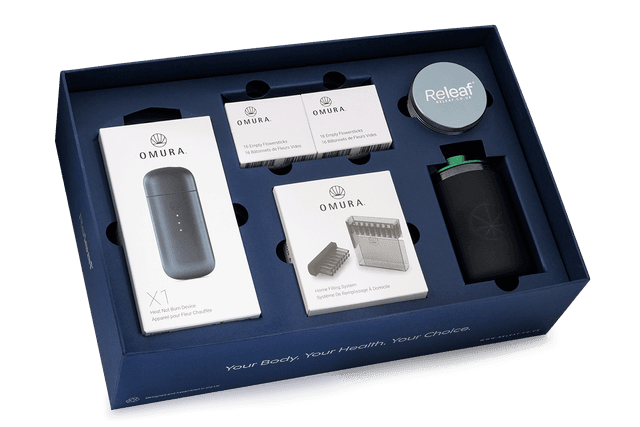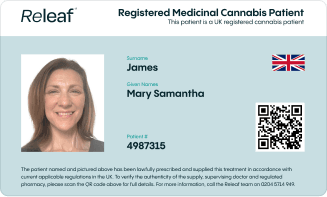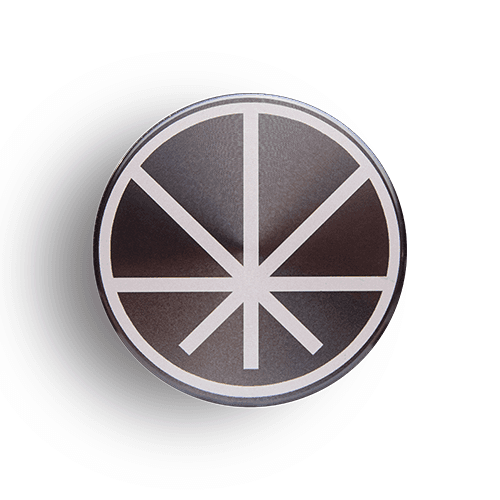Chronic pain is an extremely complex, yet unfortunately common, condition in the UK, and it's estimated to effect around 28 million adults, which is almost half of the entire population. Chronic pain can be caused by health conditions like fibromyalgia, arthritis, cancer, and endometriosis, but it can also be caused by injury or surgical trauma, and even, on occasion, for what seems like an unexplained reason.
But, what many don’t realise is, in the UK, the most common condition being treated with medical cannabis is chronic pain. Cannabinoid containing medicines have shown to interact with the pain-modulating centre of the brain, and can influence pain regulation, and the recognition of, or sensitivity to pain when applied appropriately.
To find out more, we sat down with Dr Sue Clenton, an NHS Oncologist, and a Releaf Specialist Consultant.
With over 20 years of experience treating different tumour types, and their associated symptoms, including chronic pain, Dr Clenton shared her expert insight into how medical cannabis chronic pain treatments work, how they’re tailored to the individual, and what impact they can have on a person’s overall quality of life.
Read what she had to say below:
Q: Can you tell us a bit more about how chronic pain is conventionally treated by the NHS?
“Because chronic pain can be caused by a wide range of conditions, circumstances, or injuries, and can be experienced in various sites around the body, there are a number of different treatment routes the NHS can take.
If chronic pain has been caused by a specific condition, this condition will be treated as the primary concern, with pain being treated as a symptom or secondary concern. Conventional analgesics like codeine or opiates are commonly prescribed to help patients dealing with chronic pain, and counselling sessions or cognitive behavioural therapy (CBT) may be recommended to help patients learn tactics to help them cope when their pain is greatly affecting them.
For some, practical measures such as taking part in physiotherapy, or receiving nerve blockers may be suggested and attempted, and in extreme cases surgery is considered.”
Q: How could cannabinoid-based treatments help those who have not responded to these options?
“Often, life for those not responding to conventional treatments is, to put it simply: miserable.
As well as not feeling heard, or helped, people in this situation are battling severe or intense pain, which is not only extremely debilitating and affects their quality of life, but can also lead to the development of depression, emotional stress, and anxiety.
However, evidence has shown that cannabis-based treatments can work in a multifaceted way and may be able to benefit a number of these symptoms. Medical cannabis has the ability to reduce the perception of pain in our brains, which can offer great relief to patients with chronic pain, and it has also proved useful in reducing anxiety, and improving sleep quality.”
Q: How do you determine whether medical cannabis may be a suitable option for these patients?
“Because cannabis based medicinal products (CBPMs) are a legal, but not licensed, treatment option in the UK, patients who wish to explore these options have to have tried at least two conventional, licensed approaches that have not proved successful in managing their condition.
For patients with chronic pain, this could be medications that have not relieved their pain effectively or have caused unwanted side effects, or courses of physiotherapy or nerve blockers that have been ineffective at meeting their needs.
To determine whether medical cannabis may be suitable for a specific patient, firstly we’ll take a look at how they responded to these conventional treatments, using feedback from their health questionnaire and their NHS records. If it appears medical cannabis may be able to assist this person, they can book in for a consultation with myself, or one of our other Specialists, to discuss this further.
During the consultation, we’ll ask for more details about the symptoms they are struggling with the most, and what impact this can have on their life. We’ll speak about whether cannabis could interact with any of the medications they currently use, and if they’ve tried cannabis before, we’ll ask about their previous experiences. If it appears CBMPs may be of benefit, we’ll speak to the patient about their personal preferences when it comes to administration, and discuss any potential safeguarding concerns, before designing their bespoke treatment plan.”
Q: Releaf tailor their medical cannabis treatment plans to the individual, how does this work for those with chronic pain?
“Medical cannabis is not a ‘cure all medicine’ and it is certainly not a ‘one size fits all’ approach.
This is because there are many individual factors that make us unique, whether this relates to our health, our lifestyle, or our wellbeing: we all work slightly differently, we all have different preferences, and we all have different needs.
So, we believe in treating everyone as an individual, and therefore, each of our patients receives a bespoke treatment plan, tailored specifically to them.
When it comes to treating patients with chronic pain, we’ll assess what kind of pain the patient is seeking treatment for, when the pain is experienced most, how quickly, or suddenly it is triggered, how long it lasts for, and how this impacts their lifestyle or daily routines.
If, for example, the patient struggles with their chronic pain most at night, we’d look at THC dominant products that contain relaxing terpenes that may make it easier to fall, and stay, asleep so they can get a good night's rest. But, during the daytime, we may recommend a balanced product with uplifting terpenes, because they cause a lower level of drowsiness and are less likely to impact your daily activities. As I said before, this will all depend on the individual, as will the dosing quantities, routines, and administration methods we recommend.”
Q: What kind of feedback have you received from people medical cannabis to treat their chronic pain?
“Usually during follow-up consultations, patients who have recently started to treat their chronic pain with medical cannabis are quite surprised by how quickly their medication takes effect, and are impressed by the relief it's given them in terms of pain management.
Improvements in sleep and anxiety are also frequently mentioned, and patients often tell us they’re able to cope better during the day, which has helped to improve their overall quality of life. Most patients find medical cannabis to be effective, with minimal side effects, but like any other type of treatment - some may experience nausea, dizziness, or fatigue.
Luckily, this doesn’t happen too often, and can usually be managed by adjusting the patient's treatment plan, perhaps by modifying their dosing routines or quantities, or identifying any medications medical cannabis may be interacting with, which has exacerbated side effects.”
Q: Why do you feel it's important patients with chronic pain know cannabis-based options may be available to them?
“Chronic pain is such a complex condition, and it’s one we’ve been trying to treat for millennia as doctors. It can be extremely debilitating, can have devastating effects on a person's physical and emotional wellbeing, and unfortunately, it’s also a condition that can be very tricky to treat.
So, informing patients of all the options, and giving them the information they need to make a well-informed decision, is the least we can do as healthcare professionals, I feel.
Conventional medications work for many, but for some they offer very little relief, and for these people, knowing there are other options available to them could have a remarkable impact. As I said before, medical cannabis isn’t suitable for everyone - but for those who’ve exhausted conventional approaches, it may be the answer they’ve been searching for - and we’re here to help them find out.”
Closing Thoughts
As Dr Clenton explained, medical cannabis is not a ‘one-size-fits-all’ solution, but it can offer remarkable relief to patients who have been struggling to manage their chronic pain with conventional licensed treatments.
Our patient-centred approach to healthcare ensures that each and every Releaf patient receives a treatment plan that has been tailored to their specific needs. To find out if you may be eligible for medical cannabis chronic pain treatments with Releaf, take our eligibility test here.






